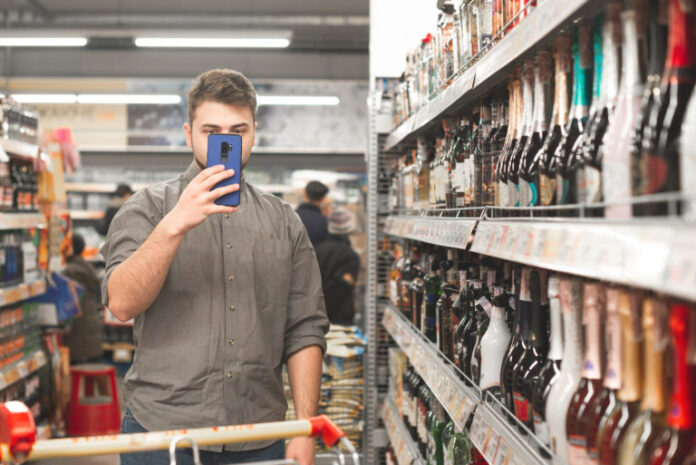Beverage alcohol retail technology remains ever-changing and constantly evolving. Super-charged by at-home consumer trends during the Covid-19 pandemic, ecommerce reached extremely high levels, and is now a convention for many consumers.
All parts of a business can benefit from better tech. This includes inventory management, point of sales (POS) systems, alcohol delivery apps, customer loyalty programs, email marketing, consumer analytics and more.
So what does the future of retail technology look like as we progress deeper into 2023, and further away from the pandemic?
“Leveraging modern technology is the only way retailers are going to survive in the long run,” says Paul Kavanagh, Founder and CEO of BevSuite, which provides email marketing tools for wine and spirits businesses. “Consumer behavior is shifting, especially among younger buyers, and those shifts accelerated during the pandemic. Beverage alcohol retailers need to adapt to that behavior, just as they adapt their inventory to shifting demand.”
“But retailers will also want to be selective and prioritize technology that helps them amplify what’s special about their businesses: their brand, personality and empathy for consumers navigating a sea of options,” Kavanagh adds.
Those options are also forever changing. Using the right technology, therefore, allows a retailer to adapt quicker. For instance: cannabis products.
“We’re focused right now on being a POS provider that’s THC-compliant,” says Gary Noble, Retail Technology Sales Executive for the POS provider RITE. “As THC products become legal for liquor stores to sell, that opens up new profit opportunities. But because THC remains a cash-only transaction, you need POS that can force cash-only on certain products. Our POS can do that.”
This was particularly important in RITE’s home state of Minnesota, where in 2022 the government broadly expanded the legal scope of cannabis beverages, virtually overnight.
“Tech allowed retailers to seamlessly adapt to that without missing a beat,” Noble says. “Tech allows retailers to stay one step ahead.”
Regarding ecommerce in general, Noble says, “Obviously you want purchasing options that fit within the widening customer experience. Walk-in stores will continue to dominate, but you can’t let ‘X’ percent of the customer base to walk away because you don’t have the full buying experience available to them. Is ecommerce going to dominate beverage alcohol retail sales? No. But is it an important part? Yes.”
Ecommerce has grown to include shipping and direct-to-consumer options, which flourished during the pandemic-forced lockdowns. Consumer expectation for this level of convenience seems here to stay, even as Covid-19 fades into the past.
“We’re working on shipping,” says Corey Gerstner, Chief Operations Officer of the ecommerce provider Bottlecaps. “Shipping is an underserved area of fulfilment. Some states are becoming more open to the idea.”
A big part of the push behind this comes from producers themselves. Many alcohol brands, especially larger ones, now feature the option to purchase products directly on their website.
“Brands really value having control of their own site — pushing sales out to retailers to fulfil, of course — so that [the brands] can capture and save their own data,” Gerstner explains. “It allows brands to get full scale on their data. When you control your own data, you can make better decisions. You can get instant feedback versus waiting on a third-party vendor, which can take weeks.”
Agreeing with him is Noble. “Technology allows smart businesspeople to make even better choices,” he says.
And, critically, technology allows retailers to manage their time even more efficiently. Enter: AI.
“We have a prototype in the works that will automatically match products to the right consumers and then launch AI-generated marketing materials from the retailer to those consumers with a single click,” says Kavanagh. “The net result will be increased sales for the retailer with virtually no additional effort.”
Timesaving is a key goal for BevSuite.
“Instead of struggling with generic software, [retailers] will save time and get better results through features like a built-in wine and spirits database and an AI writing assistant that’s tuned for wine and spirits,” says Kavanagh. “Retailers can create and send high-performing marketing campaigns in a fraction of the time.”
Perhaps that’s the imminent shift in our future, as we continue into 2023 and beyond. As ecommerce becomes commonplace, AI and Chat GPT emerge as new digital frontiers. What will that mean for our industry? Stay tuned to Beverage Dynamics as we continue to cover the latest in beverage alcohol retail technology — including posting our 2023 Beverage Alcohol Retail Tech Guide later this week.
Kyle Swartz is editor of Beverage Dynamics. Reach him at kswartz@epgmediallc.com. Read his recent piece, Downtown Spirits: An Alcohol Retailer Goes Checkout-free.




